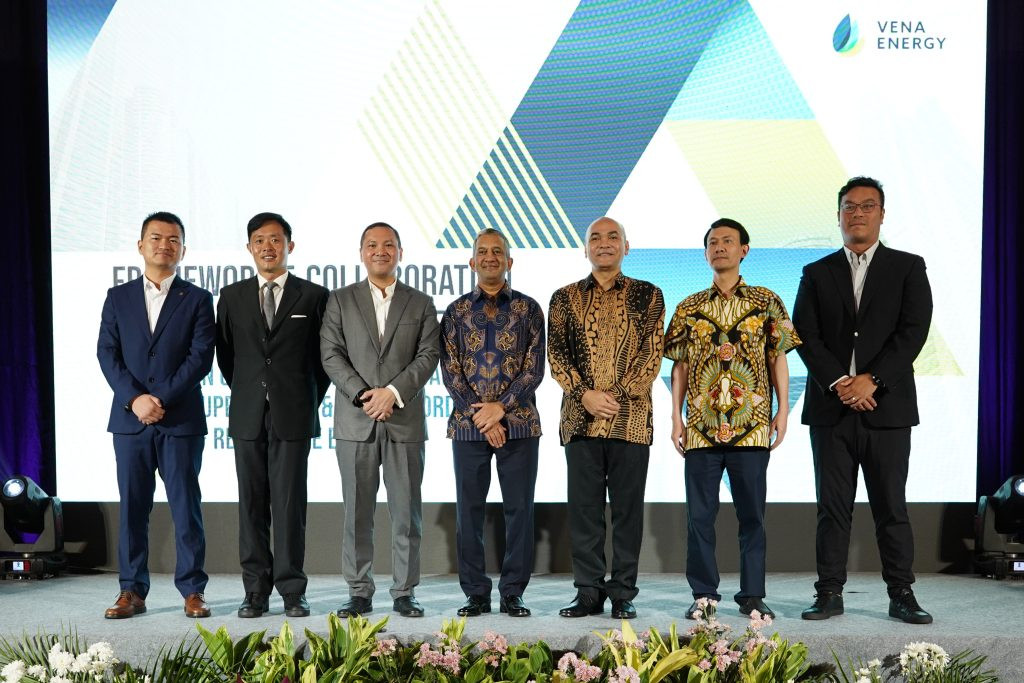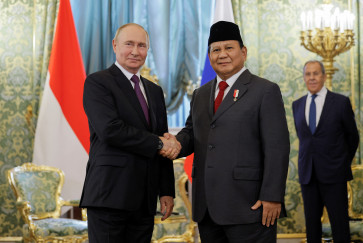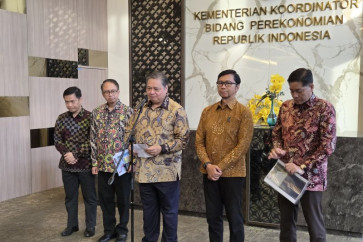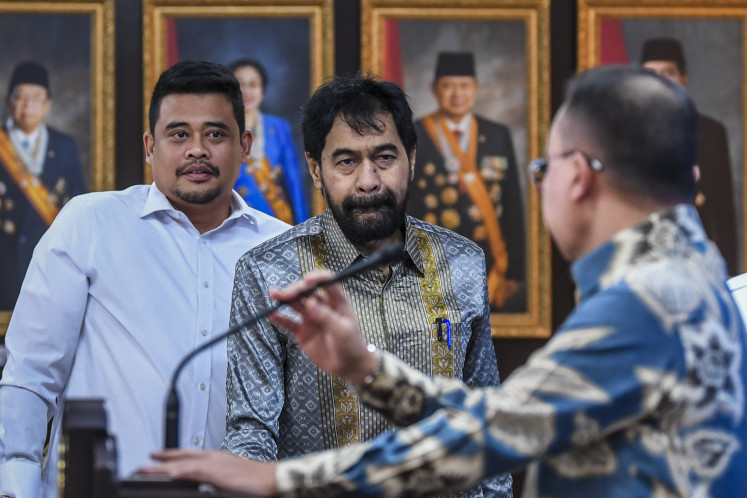Popular Reads
Top Results
Can't find what you're looking for?
View all search resultsPopular Reads
Top Results
Can't find what you're looking for?
View all search resultsVena Energy to export electricity from Batam to Singapore
Singapore's Vena Energy, in partnership with one American and two Chinese firms, plans to export 2.5 terawatt hours (TWh) of electricity annually to Singapore from solar power generated in Batam, Riau Islands Province.
Change text size
Gift Premium Articles
to Anyone

S
ingapore-based Vena Energy plans to export 2.5 terawatt hours (TWh) of electricity annually to Singapore from solar power generated in Batam, Riau Islands Province.
The electricity produced by the company would be supplied across the border to Singapore through Shell Eastern Trading, a Singapore-based subsidiary of United Kingdom-based oil and gas giant Shell, according to a press release published by Vena on Monday.
Vena Energy CEO Nitin Apte said the firm aimed to start construction in 2026 as it was still working on permits and licenses required for exporting to Singapore, as reported by Bisnis.
Read also: Singapore looks elsewhere amid doubt over RI green power exports
Vena Energy says it has been supporting Indonesia's green energy transition since 2015 through five solar and onshore wind projects with a combined capacity of 114 megawatts.
To implement the project, Vena Energy signed a collective framework agreement with Chinese solar cell manufacturer Suntech, United States-based energy storage provider Powin and Chinese battery cell manufacturer REPT Battero, the press release states.
The agreement, signed in a ceremony in Jakarta on Monday, includes exploring prospects for the local production of solar photovoltaic (PV) modules and battery energy storage system (BESS) components in Batam, which Vena Energy referred to as its hybrid megaproject.
“With this framework agreement, we want to contribute significantly to the development of a productive domestic supply chain in the renewable energy sector, which will support Indonesia's energy transition plan,” Nitin was quoted as saying in the release.
The joint project would contain more than 2 gigawatts of solar power and a battery energy storage system capable of holding more than 8 GWh of clean energy, according to the release, which would make it the largest renewable energy initiative in Southeast Asia.
Vena’s Nitin expressed confidence that this agreement would lead a substantial end-to-end investment for solar panel development in the country.
He expressed optimism that the project would bolster Indonesia's energy transition, stimulate employment, foster industrial growth and create export opportunities in the renewable energy sector.
Renewable energy investment in Indonesia amounted to US$527 million in the first half of 2023, which is just 29.4 percent of the full-year target of $1.79 billion, according to the Energy and Mineral Resources Ministry.
Read also: Renewable energy investment well below target in first half
Previously, Coordinating Maritime Affairs and Investment Minister Luhut Panjaitan and Singapore’s Senior Minister and Coordinating Minister for National Security Teo Chee Hean signed a bilateral memorandum of understanding (MoU) on renewable energy cooperation in Singapore in March 2023.
Through the MoU, Singapore requested electricity from renewable sources from Indonesia to support its plan for a greener energy mix.
For this purpose, major Singaporean energy developers and corporate partners have invested $37 billion in a “green corridor” located in Indonesia’s Riau Islands.
However, Teo revealed that the country had been seeking alternative ASEAN nations to source “green electrons”, its term for electricity produced from renewable energy, for a while. This decision followed a period of ambiguity about exporting power from renewables.









